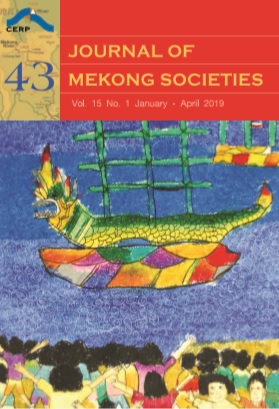Land Conflict and Land Governance in the Greater Mekong Sub-Region: Case Studies of Urban and Peri-urban in Thailand
Main Article Content
Abstract
This article is a state of knowledge review of urban and peri-urban land conflict and governance in the Greater Mekong Sub-Region, based on case studies in Thailand. It explores arguments and knowledge gaps of urban and peri-urban land issues and reveals the processes of land exclusion, land formalization and land grabbing in urban and peri-urban areas. Current conflicts and instances include: the case of Mahakan Fort in Bangkok where the original residents were forcibly moved out by a government development project; the case of local slum communities in Khon Kaen municipality that were evicted because of the construction of a double-track railway; the case of impacts of urbanization on peri-urban and local responses; and the case of land use changes in Udon Thani province. This article investigates policy, legal, institutional and stakeholder backgrounds to issues of land dispossession, conflict and governance. The research found that concepts, theories and research studies about land conflict and governance are sufficient to explain these case studies. However, some challenging issues and knowledge gaps exist. First, the state uses development discourse to seize land from the people and allows entrepreneurs to take advantage of that land even though there are many institutional mechanisms working for stable land ownership. Second, because of the increase in urban land prices, landowners focus on the greatest mobility and let people use the land only a short time. Third, in these cases, what will happen to people’s sense of citizenship or sense of belonging? Fourth, when people claim legitimacy to use their land, it may result in injustice for their neighbors. Finally, urbanization has resulted in changes in people’s ideas about food security; the focus is now on consumption instead of production, and more on accessibility to food than accessibility to land for the production of food.


